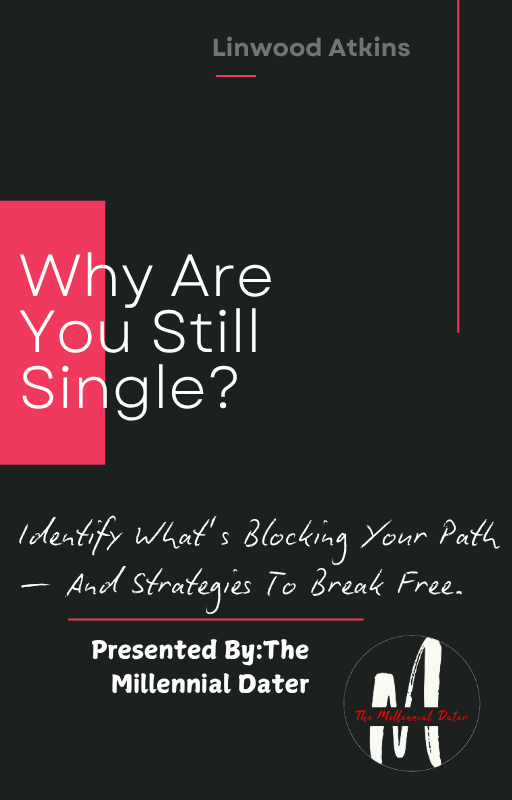Is It Them Or Is It Me?
Is It Them or Is It Me? The Truth About Self-Sabotage in Modern Dating
You finally meet someone who checks all your boxes. They're attractive, interesting, emotionally available—everything you claimed you wanted. Three dates in, and instead of feeling excited, you're lying awake at 1 AM analyzing their text response time. Did those three dots linger too long? Why did they use a period instead of an exclamation point? That joke they made about their ex—was it a red flag or are you reading too much into things?
By morning, you've constructed an entire narrative about why this won't work. They're probably still hung up on their ex. Or they're too eager, which means they're desperate. Or they're playing it cool, which means they're not actually interested. You haven't even finished your coffee, and you've already written the breakup speech in your head.
This pattern feel familiar? Then it's time for an uncomfortable question.
What if the problem isn't them? What if it's not bad timing, bad luck, or a bad dating pool? What if you're the one standing in your own way?
Self-sabotage in dating rarely announces itself. You don't wake up thinking, "Today I'll destroy my chances with someone great." It disguises itself as protection, as standards, as being realistic. It whispers that you're just being careful, that you're learning from past mistakes, that you're simply not settling.
But there's a difference between discernment and destruction. One helps you choose well. The other ensures you never have to choose at all.
What Self-Sabotage Actually Looks Like
Self-sabotage shows up in patterns you probably don't recognize as problems. In fact, you might even view these behaviors as strengths—being selective, maintaining boundaries, protecting your peace.
You find fatal flaws in everyone. Their laugh is too loud. They're too close to their family—or not close enough. They have quirks that irritate you. Everyone has deal-breakers, but when every person you meet has immediately disqualifying traits, you're not being selective—you're avoiding connection.
You pull away when things get real. The moment someone shows genuine interest, something shifts. You get busy. You need space. You suddenly remember you're not ready for a relationship. Healthy caution is smart, but consistent retreat when someone actually wants you reveals fear, not wisdom.
You stay attracted to unavailable people. The person who's "not looking for anything serious" gets all your attention. The one who's emotionally closed off becomes a challenge you're determined to win. Meanwhile, people who are actually available seem boring or too eager. If you only feel chemistry with people who can't fully choose you, that's self-sabotage wearing the disguise of preference.
You create tests they can't pass. You need them to text first—but not too often. They should pursue you—but not seem desperate. They have to be consistent—but also give you space. You've created an impossible maze of unspoken rules designed to prove they'll eventually disappoint you, just like you suspected.
You overshare or undershare strategically. Some people dump their entire trauma history on date two, overwhelming potential partners before connection develops. Others keep everything surface-level for months, never allowing anyone close enough to actually know them. Both extremes prevent real intimacy, which might be exactly the point.
Why We Sabotage Good Things
Self-sabotage isn't random. It serves a purpose, usually rooted in protecting yourself from the thing you fear most: being hurt, being rejected, being vulnerable, and having someone decide you're not enough.
If you reject people before they can reject you, you maintain control. If you find the flaw first, you don't have to face the vulnerability of being chosen—or not chosen—as you authentically are. If you keep everyone at arm's length, no one can get close enough to hurt you.
Past heartbreak teaches us that opening up leads to pain. Rejection reinforces the belief that something's wrong with us. Betrayal proves that people can't be trusted. These experiences create protective patterns that made perfect sense at the time.
The problem? These patterns outlive their usefulness. The walls that once protected you now imprison you. The caution that kept you safe now keeps you alone.
Breaking the Pattern
Recognizing self-sabotage is the first step. The second is choosing differently, even when every instinct screams at you to retreat, criticize, or create distance.
Get curious instead of critical. When you notice yourself finding fault with someone, pause and ask: "Is this actually a problem, or am I looking for reasons to disqualify them?" Not every quirk is a red flag. Not every difference is incompatibility.
Sit with discomfort. When someone's interest makes you want to run, stay put. When vulnerability feels terrifying, lean in anyway. Growth happens in discomfort. Connection requires risk. You can't build intimacy from behind walls.
Challenge your story. What narrative are you telling yourself about relationships? That people always leave? That you're too much or not enough? That getting close always ends in pain? These stories feel true because they're based on real experiences, but they're not prophecies. Different people, different outcomes.
Lower the stakes. Stop treating every date like an audition for life partnership. You're just seeing if you enjoy someone's company, if conversation flows, if there's potential worth exploring. The pressure you're applying makes everything feel heavy and high-risk.
Be honest about what you want. Stop playing games with communication or availability. If you like someone, show interest. If you need space, say so clearly. Authentic communication feels vulnerable, but it's also how you find people capable of meeting you honestly.
Accept that hurt is possible. You can't guarantee you won't get hurt again. You can only decide whether the possibility of connection is worth the risk of pain. If you've decided it's not, that's valid—but then be honest with yourself that you're choosing to stay single rather than blaming the dating pool.
The Bottom Line
Self-sabotage keeps you safe, but it also keeps you stuck. It protects you from potential pain while guaranteeing you'll stay lonely. It lets you blame external factors—bad timing, wrong people, terrible apps—instead of examining your own patterns.
The hardest truth about self-sabotage is that recognizing it doesn't make it stop. You'll still feel the urge to run when things get real. You'll still find yourself nitpicking someone's flaws. You'll still want to text the unavailable person instead of the one who's genuinely interested.
The difference is that now you'll notice. And noticing gives you the choice to do something different.
Stop asking whether it's them or you. Start asking whether you're willing to risk being wrong about people if it means you might finally be right about someone.
Ready to take the next step in your love life?
Whether you’re seeking clarity through coaching or ready to be matched with someone special, we’ve got you covered.

